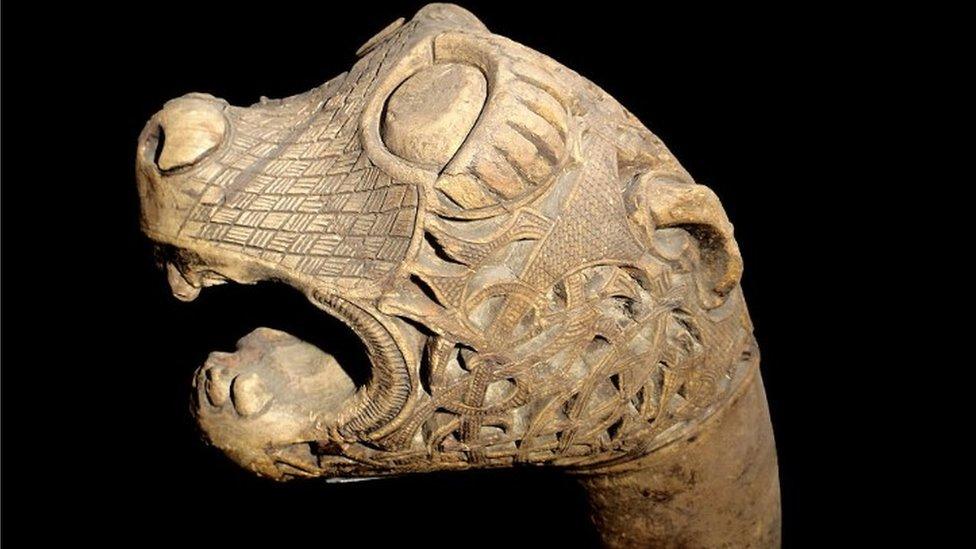'Extraordinary' Viking combs reveal Ipswich's medieval importance
- Published
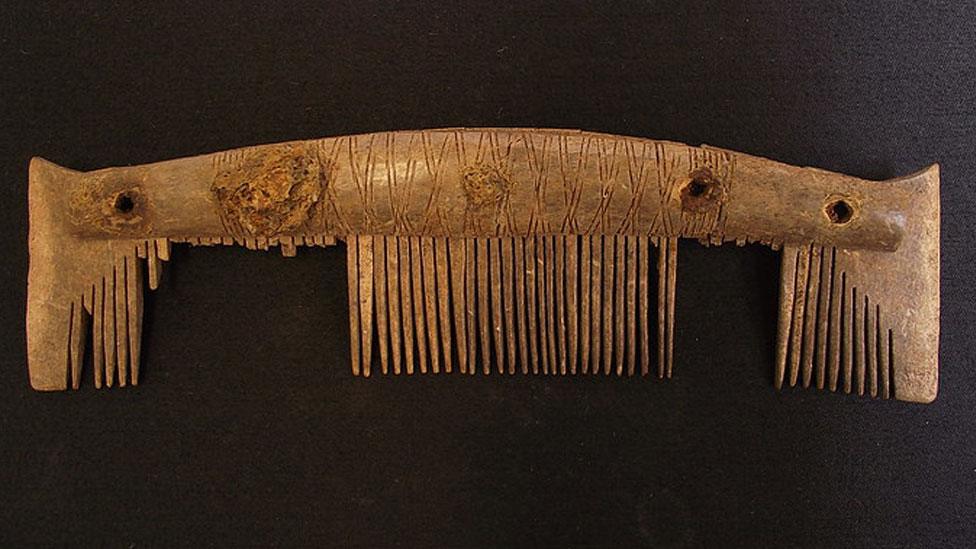
Most of the combs were made from red deer antler, although some were made from bone
An unearthed collection of Viking combs is "extraordinary and unique in the UK", according to archaeologists.
The antler and bone finds were discovered in Ipswich, Suffolk, during 40 excavations over the course of 20 years.
Authors Ian Riddler and Nicola Trzaska-Nartowski said they included "an extraordinary sequence of Viking combs unmatched elsewhere in the country".
They indicate the presence of Vikings in Ipswich in the late 9th Century.
Riddler and Trzaska-Nartowski are among the authors of a recently published analysis of 1,341 finds and 2,400 fragments of waste unearthed during digs between 1974 and 1994, external.
"It was always our intention that the book had a European outlook and placed Ipswich in the centre of a developing early medieval world for one particular craft," they said in a statement about the analysis.
"There are several items that indicate links abroad, particularly northern France, Frisia (what we now know as parts of the Netherlands, Germany and Denmark) and southern Scandinavia."
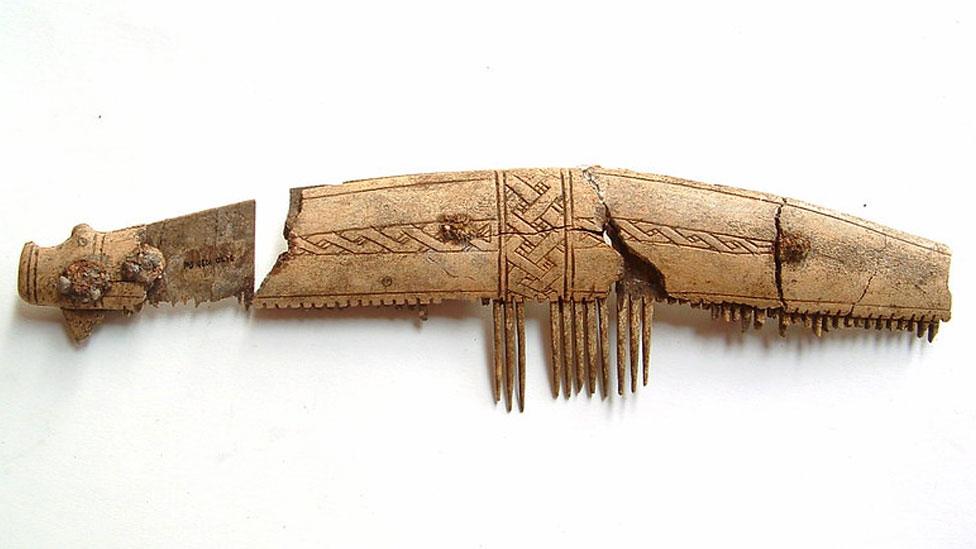
Many were imported, revealing Ipswich's trading links to parts of modern-day France, the Netherlands, Germany and Denmark
Ipswich was founded as an Anglo-Saxon trading port, external in the wake of the collapse of the Roman Empire and prospered through maritime trade with Europe.
The combs were made in Scandinavia and they indicate the presence of Vikings in Ipswich in the late 9th Century - it fell under Viking rule in AD869.
Combs were also made in the town and had "distinctive local forms", according to the Suffolk County Council Archaeological Service.
Most were made from fragments of red deer antler, although some were made from bone, including whale.
Brooch moulds, pins, strap-ends, weaving and textile-making equipment, as well as some gaming pieces - reflecting Viking enthusiasm for board games - were also examined.
Melanie Vigo di Gallidoro, Suffolk County Council's deputy cabinet member for protected landscapes and archaeology, said: "With one collection of finds in isolation, we might not have the confidence to recognise their importance.
"But in this case, with around 40 excavations in Ipswich over 20 years, we can build a convincing picture of the role that the town played in medieval life."
Will Fletcher, East of England development advice team leader, Historic England, said it was a "fascinating insight into Ipswich's medieval history... and its reach across the North Sea".

Follow East of England news on Facebook, external, Instagram, external and X, external. Got a story? Email eastofenglandnews@bbc.co.uk, external or WhatsApp 0800 169 1830
Related topics
- Published6 February 2024
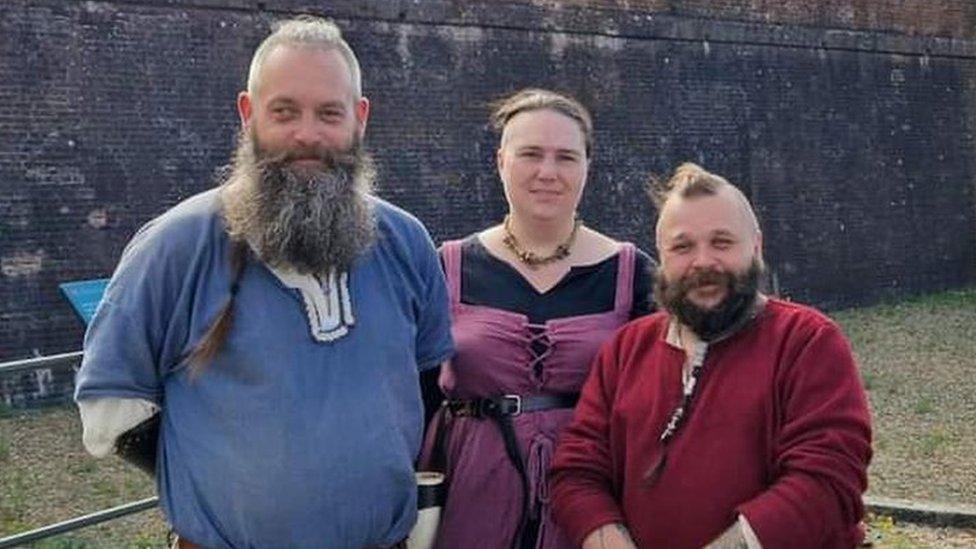
- Published19 July 2023
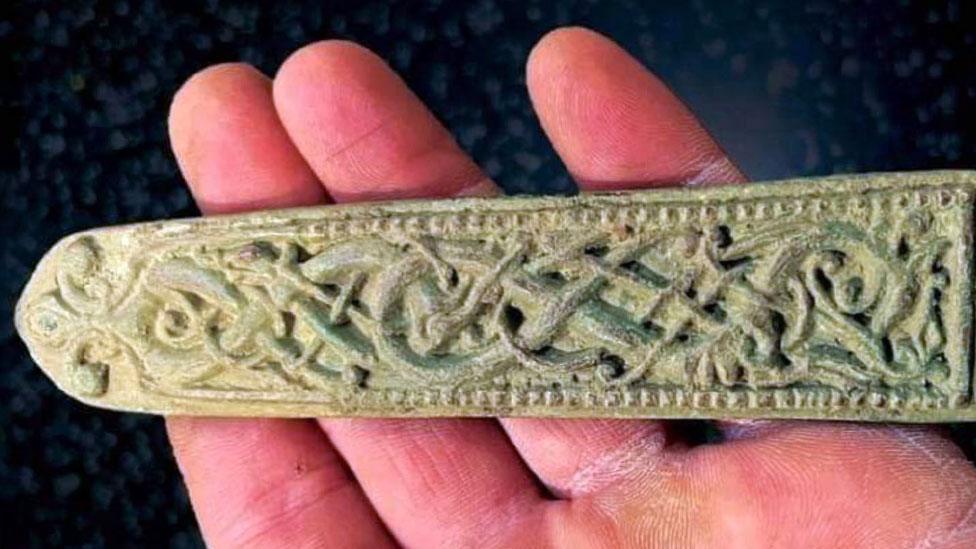
- Published1 February 2023
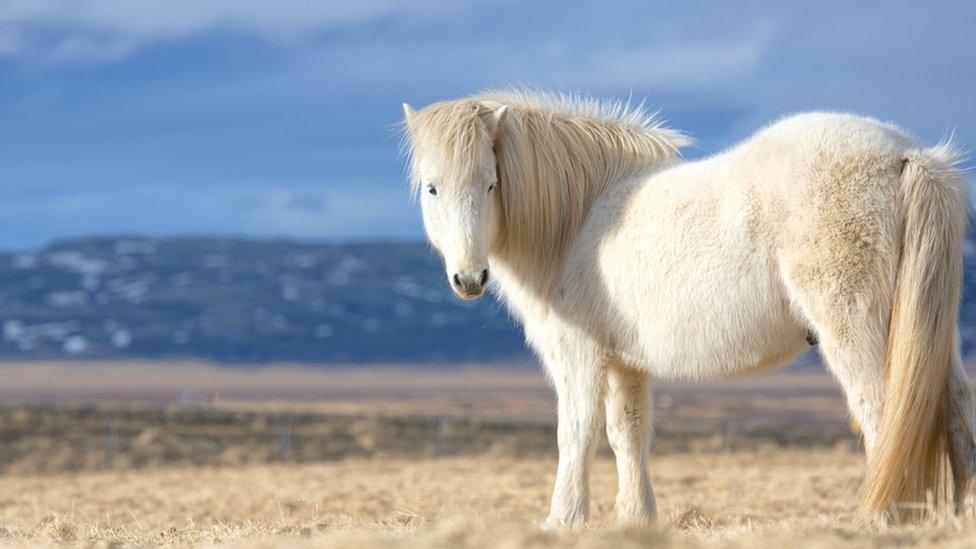
- Published11 July 2022
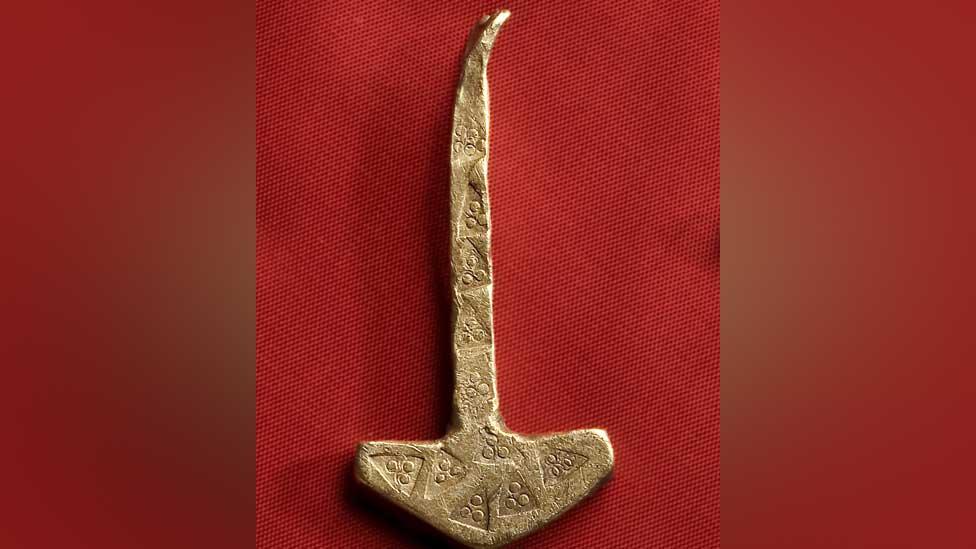
- Published4 December 2020
